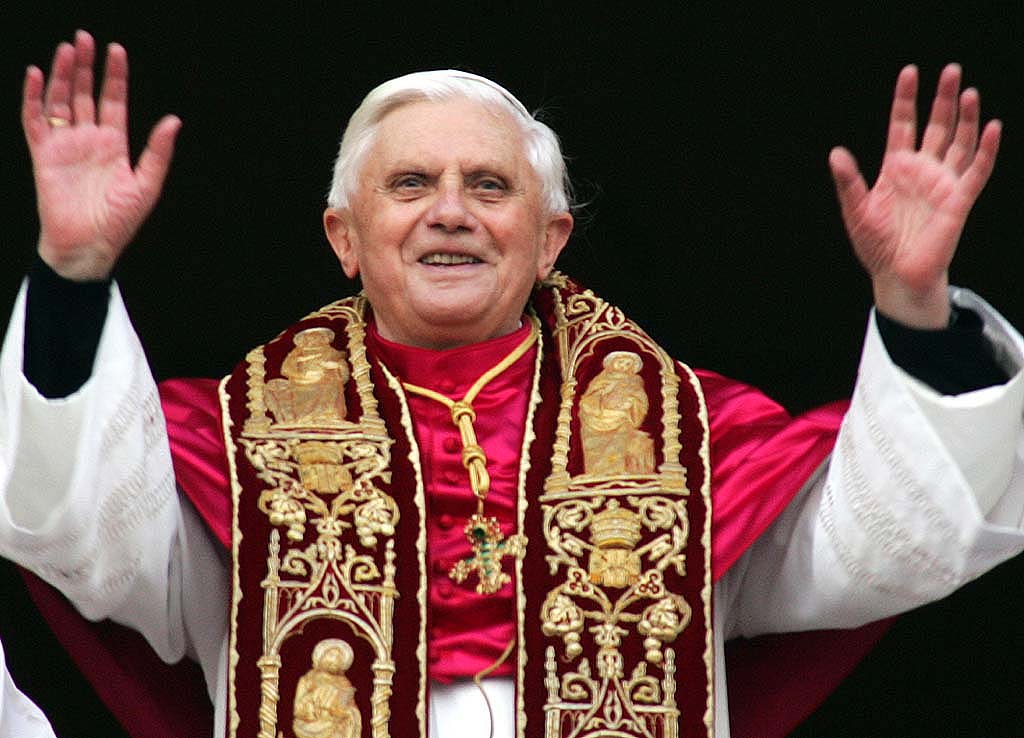Pope says denial of God is unreasonable
 Paris - The search for God is the foundation of European culture and a fundamental expression of human reason, Pope Benedict XVI said Friday in Paris.
Paris - The search for God is the foundation of European culture and a fundamental expression of human reason, Pope Benedict XVI said Friday in Paris.
"Creation is rational," the pope said in a speech delivered on the first day of his four-day visit to France.
"A purely positivistic culture which tried to drive the question concerning God into the subjective realm, as being unscientific, would be the capitulation of reason... and hence a disaster for humanity."
The address was widely anticipated as it came exactly two years after Benedict XVI delivered a controversial speech in Regensburg, Germany, which angered many Muslims.
But Friday's oration, delivered before some 650 intellectuals, artists and scientists at the College des Bernardins, will antagonize few people except perhaps those who see religion and culture as necessarily distinct spheres.
"What gave Europe's culture its foundation - the search for God and the readiness to listen to him - remains today the basis of any genuine culture," the pope said.
The list of those invited to hear the speech included a wide variety of French notables, such as former French president Jacques Chirac, actor Michael Lonsdale and Catherine Millet, an art critic, curator and author of the memoir The Sexual Life of Catherine M, which one critic described as "the most explicit book about sex ever written by a woman."
Following the speech, the pope was to meet briefly with representatives of France's Jewish community before travelling in the Popemobile to the Cathedral of Notre Dame to celebrate vespers and greet some 10,000 young people gathered on the square before the cathedral.
Earlier in the day, in a brief speech given at the Elysee Palace, he said that the continued separation of church and state was essential for religious freedom.
"It is fundamental ... to insist on the distinction between the political realm and that of religion in order to preserve both the religious freedom of citizens and the responsibility of the state towards them," Pope Benedict XVI said during a reception hosted by French President Nicolas Sarkozy and his wife.
Speaking after a brief meeting with Sarkozy, the pope added that it was also vital "to become more aware of the irreplaceable role of religion for the formation of consciences and the contribution which it can bring to, among other things, the creation of a basic ethical consensus within society."
The statement was intended to reassure the French that he had no objections to their notion of "laicity," a strict separation of religion and public affairs that is part of the national identity and has been law since 1905.
It was also a noteworthy echo of a speech Sarkozy himself made last December, when he called for a "positive laicity" and suggested that the state could ultimately grant subsidies to religious groups.
On Friday, in welcoming the pope to the Elysee Palace, the French president repeated his call, saying that "positive laicity offers our consciences the opportunity to discuss, by means of beliefs and rituals, the meaning we wish to give to our existence."
Describing the pope as "a man of conviction, knowledge and dialogue," Sarkozy said that "the spiritual quest is no danger to democracy."
The visit of the 81-year-old pope to France - his first since he was elected to succeed the popular John Paul II in April 2005 - comes at a time when the status of the Catholic Church is declining in France, with fewer people identifying themselves as Catholics and only a small minority regularly attending Mass.
According to a recent survey, nearly three out of four French adults say that the church has no influence on French society.
On Saturday, the pope will travel to the pilgrimage site of Lourdes, in southern France, where he is to celebrate the 150th anniversary of the apparition of the Virgin Mary to a 14-year-old peasant girl named Bernadette Soubirous in 1858. (dpa)